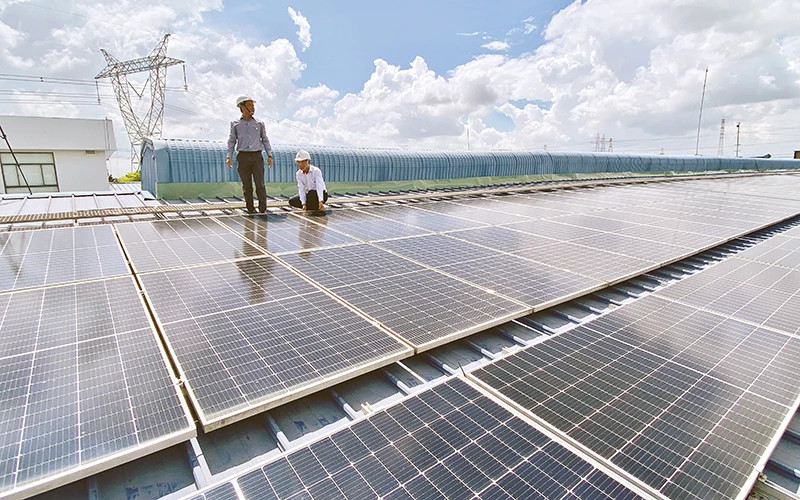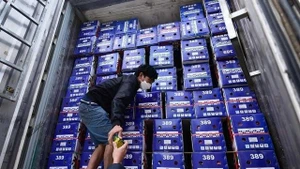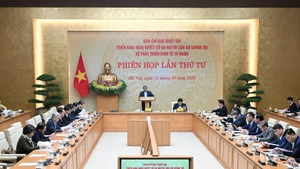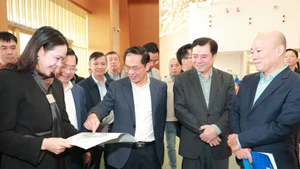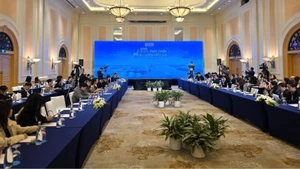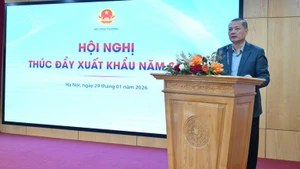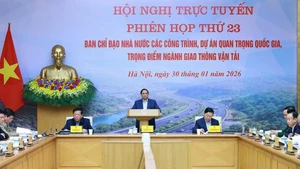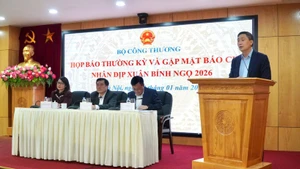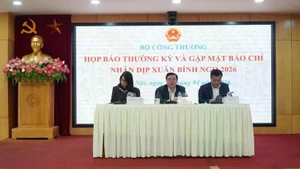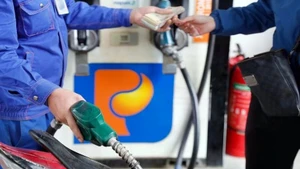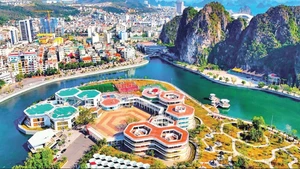Specifically, relevant ministries and sectors should soon complete the legal framework for electricity purchasing prices, infrastructure investment, and licensing conditions to promote green energy sources in export and processing zones.
Currently, a number of manufacturing enterprises operating in 17 industrial parks in Ho Chi Minh City have installed about 80 to 90 MWp of rooftop solar power, thereby helping to reduce production costs, meet green certification requirements from strict export markets, and realise commitments to reducing emissions.
A large waste of investment resources
As a wholly Japanese-invested company located within Tan Thuan Export Processing Zone in District 7, Juki Vietnam Co., Ltd. has invested in two rooftop power systems to serve production needs, at a total investment of nearly 40 billion VND (1.6 million USD). The surplus power of one rooftop power system is purchased by the electricity sector while the remaining system has yet to be connected to the grid, four years since installation, due to bottlenecks in regulations on electricity purchase.
Director of Juki Vietnam Dao Quoc Cuong said each solar power system generates an average of over 100,000 kWh per month (over 1 million kWh per year), equivalent to a combined output of nearly 2.5 million kWh for the two systems. The investment in the rooftop solar system provides the company with more electricity for use, reducing monthly costs by about 350 million VND.
It is almost mandatory for an FDI enterprises like Juki Vietnam to have a green certificate when participating in the export market. On the other hand, investing in renewable energy has been encouraged by the Vietnamese Government, helping to reduce carbon emissions towards Net Zero.
As a company specialising in leasing factories, SCC Investment Joint Stock Company (SCCI) also invests in rooftop solar power systems in industrial parks in Ho Chi Minh City, with a total installed capacity of about 10 MWp. The electricity is sold and connected to the national grid.
SCCI Deputy General Director Nguyen Truong Hung said the company combines both leasing factories and installing rooftop solar systems to connect to the grid as it has more than 400,000 m2 of available factory roofs. However, since 2020, due to the bottlenecks in electricity purchasing prices, some systems have had to be abandoned, causing tens of billions of VND in losses for the company, not to mention the lost investment costs.
With an average grid output of about 1,500 MWh per month, SCCI’s rooftop solar power projects not only help reduce CO2 emissions, but also create stable and sustainable sources of electricity for the national grid, contributing to reducing overload for industrial parks, especially during peak hours.
However, the common problem facing enterprises like SCCI or Juki Vietnam is that the State has no mechanism for the purchase of electricity, so their excess electricity output is connected to the national grid, but they are not paid.
Nguyen Truong Hung said: “The slow removal of obstacles in electricity purchase policies has caused a great waste of renewable energy, negatively affecting investors and causing damage to the State. This is contrary to the green production trend that the Government is aiming for. In addition, the implementation of renewable energy projects still faces many difficulties and overlaps, with complicated procedures and a lack of specific mechanisms.”
Many companies and factories with rooftop solar systems operating in export processing zones and industrial parks are encountering the problem that if they do not use up renewable energy sources, it will cause great waste. Meanwhile, they are still required to buy electricity from the State because renewable energy can be inconsistent, and they need storage equipment to store power.
Enterprises are hesitant to invest in solar power
According to the Association of Enterprises in Industrial Parks in Ho Chi Minh City, enterprises have installed 80 to 90 MWp of rooftop solar power systems in 17 export processing zones and industrial parks in the city. The installation of rooftop solar power systems is a practical need in serving production.
Renewable energy systems not only help to reduce costs, but are also an important condition for some export enterprises to have green certificates as required by European and American countries.
Nguyen Tan Phong, Deputy General Director of Tan Thuan Corporation (the operator of Tan Thuan Export Processing Zone), said many enterprises in the industrial zone tend to take advantage of their large factory roofs to install rooftop solar power systems, helping to increase the efficiency of available resources, reduce grid power consumption, and minimise CO2 emissions.
However, investments in the installation of rooftop solar power systems have encountered many obstacles because the policy on rooftop solar power has not been clearly regulated regarding the application for construction permits, appraisal and approval of fire prevention and fighting, purchase price and electricity purchase rates, etc., so enterprises are hesitant to invest in such power system.
A Japanese company located in High-Tech Park in Thu Duc City shared that the company signed a rental contract with a company specialising in solar power to install a rooftop solar power system. The two parties agreed on the installation of a 2.2 MWp power system, in which the roof lessor will use 90% of the electricity for production, while the remaining 10% will be purchased by the tenant and sent to the electricity grid. However, the electricity purchase price has not been announced by the Ministry of Industry and Trade, so both parties cannot proceed with the work as per the contract signed in late 2023.
Dao Quoc Cuong, Director of Juki Vietnam, hopes that the State will soon issue a policy with a suitable mechanism on the purchase of rooftop solar power, not a price of 0 VND as it is now, or at least create favourable conditions in terms of tax and loans for businesses to have capital to invest in such rooftop solar power systems, thereby creating “green certificates” as well as carbon credits towards reducing CO2 and greenhouse gas emissions.
Dao Xuan Duc, Chairman of the Association of Enterprises in Ho Chi Minh City Industrial Parks, said the Ministry of Industry and Trade has only consulted on the installation of rooftop solar power for houses and offices, while there are no specific instructions for factory roofs in export processing zones and industrial parks, even though it is a very large segment.
The installation of rooftop solar power is not only the goal of enterprises but also the common goal of the country because it not only helps enterprises reduce production costs and meet export criteria, but also helps the State save electricity and reduce investment costs. The Ministry of Industry and Trade needs to soon research and advise the Government to issue regulations guiding the electricity sector to purchase surplus renewable electricity. At the same time, the electricity sector needs to proactively invest in infrastructure to serve the collection and transmission of electricity from rooftop solar power systems to the national grid.
